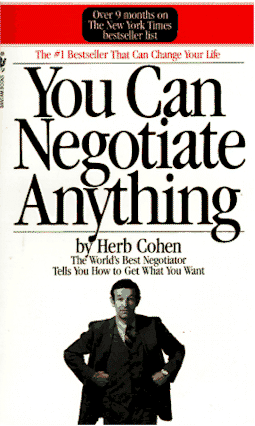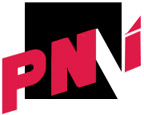|

|

Visit Herb’s Corner
|
|


Herb Cohen’s negotiating material is available
online…
get yours today!
|

|
|
Because
of the catastrophic attacks on the World Trade Center and the Pentagon
on September 11th, Herb was asked to give his input and
has attended numerous meetings at the State Department and Pentagon.
  (Un-Classified memo to President
Bush, September 18,
2001.) (Un-Classified memo to President
Bush, September 18,
2001.)
In
February 2001, he wrote a memo, The Reality of Adversarial Negotiations,
to the new Secretary of State, analyzing the Mideast Peace Negotiations.
  (Letter
to Colin Powell, February 2001) (Letter
to Colin Powell, February 2001)
With the
first World Trade Center bombing in 1993, he gave a number of interviews
to the media about the danger of international terrorism.
  (Jerusalem
Post piece of March 1993). (Jerusalem
Post piece of March 1993).
When
Saddam Hussein engaged in unprovoked aggression against Kuwait, he again
gave his insights to the Administration about the problems of coalition
building, stationing American forces on the Arabian Peninsula and our
ultimate military objectives.
  (Gamble In the Gulf,
August 1990) (Gamble In the Gulf,
August 1990)
Still
concerned with this growing problem and the media’s role in unknowingly
abetting the terrorists achieve his objectives he wrote an Op-Ed piece
for the Wall Street Journal.
  (Terrorism and
the Media, August 1986) (Terrorism and
the Media, August 1986)
Since
then his counsel has frequently been sought by the White
House and Executive Branch on the issue of combating the threat of
international terrorism.
  (Memorandum
to President Reagan dated July 10, 1985.) (Memorandum
to President Reagan dated July 10, 1985.)
During the 444 days of the Iranian Hostage Crisis
Herb Cohen served as an advisor to President Carter and then candidate
Ronald Reagan. Indeed, he has been credited with shaping the
latter’s strategy that would result in the release of the Americans
held captive on Inauguration Day.
  (Jack
Anderson’s syndicated column of February 12, 1981.) (Jack
Anderson’s syndicated column of February 12, 1981.)
|
|
|
![]()

![]()


